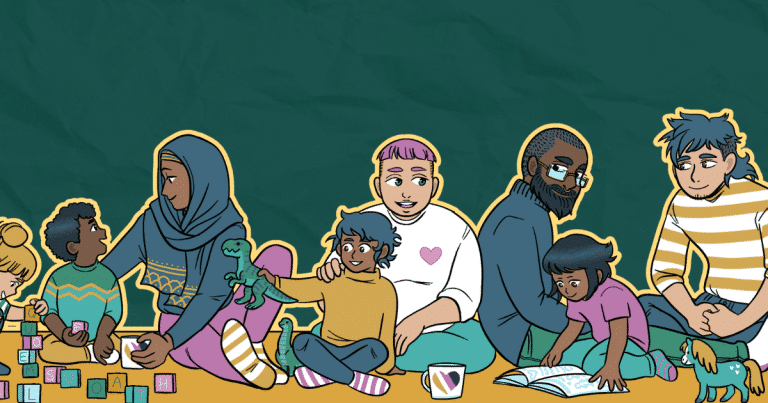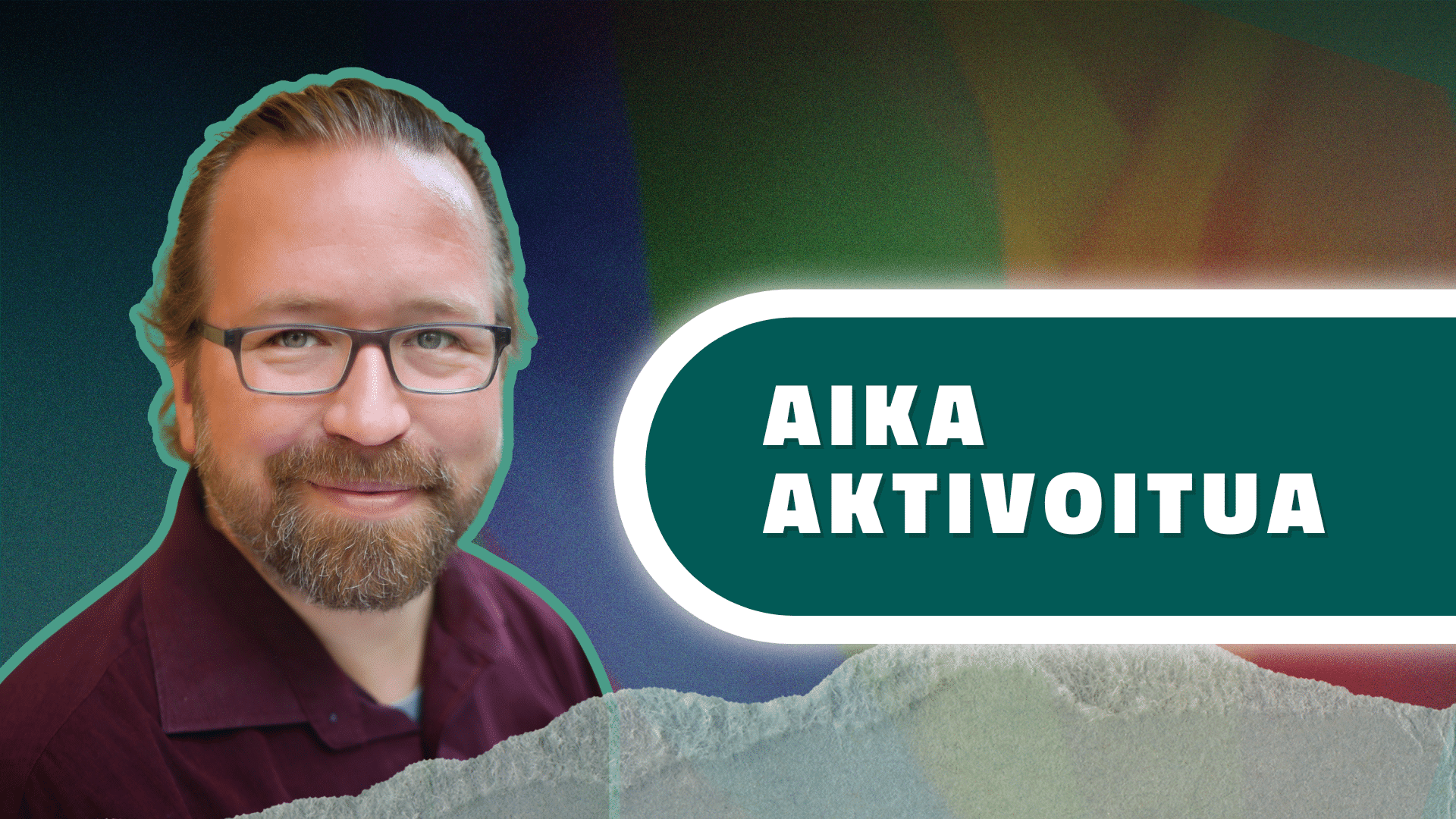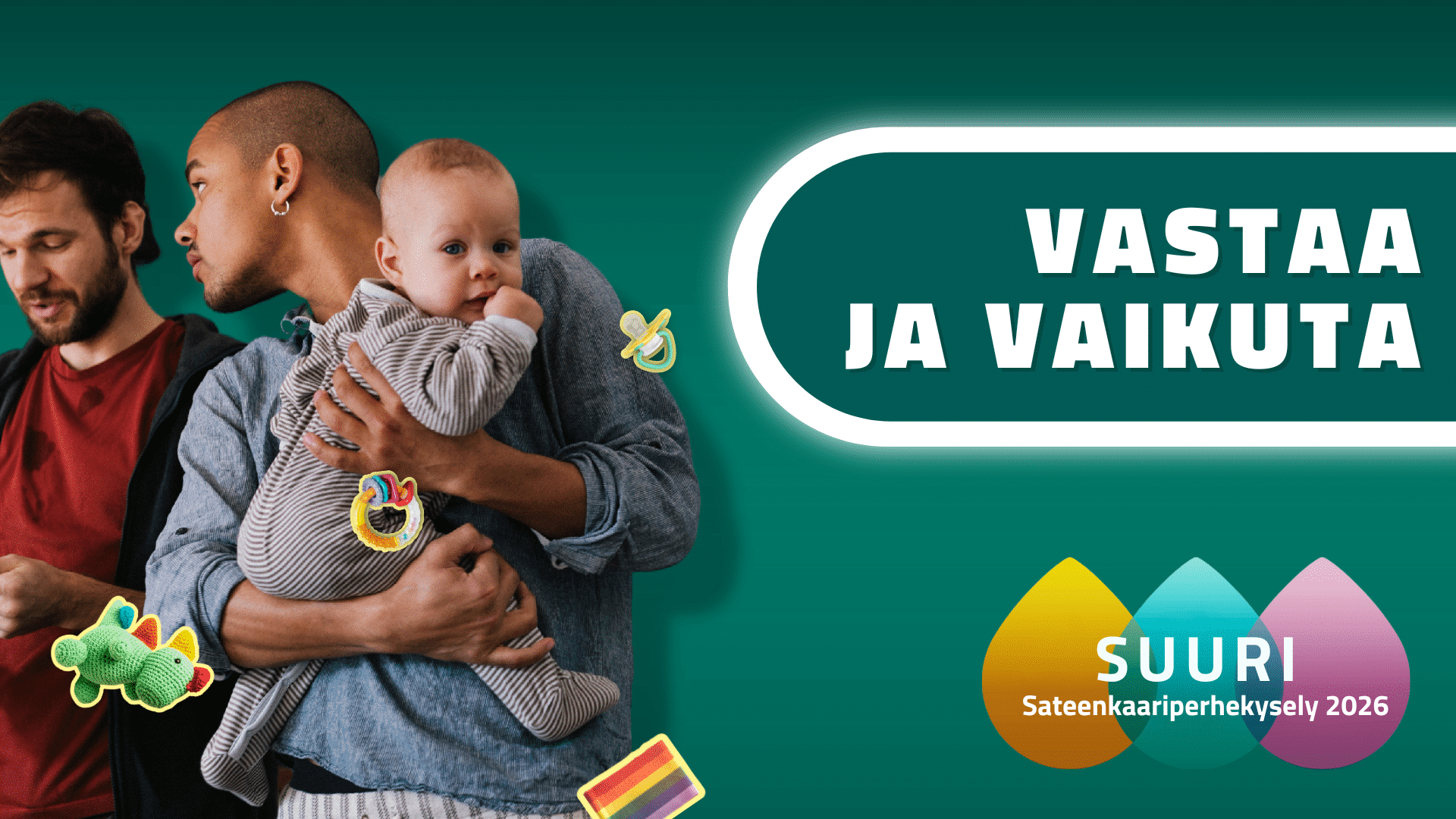A few days ago, Ilga-Europe published its annual Rainbow Europe map monitoring the status of LGBTI rights in Europe, state by state. Finland got fairly high standing in the records. Rainbow Europe map indicates the status of legislation. Finland have recently taken major legal steps, like marriage equality and maternity act. Both of these have been passes by the citizens’ initiatives. However, the previous government (2015-2019) was very passive in LGBTI rights.
There are still major legal shortcomings in Finland, but what is lacking even more is the enforcment of the non-discrimination and wellbeing policies for the LGBTIQ people, as the Finnish LGBTI association Seta has stated in their (Finnish language) article about the Rainbow Europe map. Finland needs a national LGBTI Action Plan for the government.
What is the current status of rights for the rainbow families in Finland? Nelfa, the European umbrella assocation for rainbow families associations, have decided to compile a database and a map about the rainbow family rights all over the Europe. Sateenkaariperheet ry has been asked to give a review on the current status of rainbow family rights in Finland. We wanted to share the input we have sent to Nelfa with the public audience since unfortunately small portion of our knowledge is usually ever available in English.
These are our answers to the questions by Nelfa:
FAMILY RIGHTS
- MARRIAGE EQUALITY
Came into effect on 1 March 2017 and was passed in the parliament on the basis of a citizens’ (not the government’s) initiative, the first citizens’ initiative in Finland ever leading to reform of legislation. The reform of the marriage act included the rights that were excluded in the law on registered partnership, namely the joint adoption and the family name. The reform package also included recognition of same-sex unmarried couples and many reforms of the social benefits, including the parental leaves. However, the reform did NOT include reforms to the recognition of parenthood, which was later reformed on the basis of another citizens’ initiative, the Maternity Act of 2019. See “Automatic co-parent recognition”.
- REGISTERED PARTNERSHIP (SIMILAR RIGHTS TO MARRIAGE)
n/a
- REGISTERED PARTNERSHIP (LIMITED RIGHTS)
Came into affect in 2001 and excluded rights to adoption and family name. Since 2009 only excluded the joint adoption. See “Second-parent adoption”.
- COHABITATION
2011 law on sharing the property after a separation from a long cohabitation relationship is gender neutral. Many laws that were reformed after the 2001 registered partnership law includes gender neutral interpretations of the unmarried cohabiting couples. However, the law on registered partnership in 2001 included a resolution from the parliament that the same sex cohabitation shouldn’t be seen as a common-law partnership. This affected specifically the interpretations of laws on many of the social benefits, as a result of which the same-sex couples were often getting higher benefits since they were not considered cohabiting couples. The marriage law reform of 2017 included a clear resolution that in addition to the same and different sex married couples the same and different sex unmarried couples should be treated the same in all instances. Thus, same and different sex cohabiting unmarried couples have been treated the same way since 2017.
- NO CONSTITUTIONAL LIMITATION ON MARRIAGE
No limitation.
- FOSTERING
There was never any legal limitation of same-sex couples or transgender individuals, but until very recently there has been markedly few rainbow families as foster carers. First children were placed in openly rainbow families around 10 years ago. Rainbow Families Finland has an on-going project to recruit more rainbow families and develop social work with the families. It’s a three year project with one staff member.
- JOINT ADOPTION
Became possible for same sex couples on 1 March 2017. No children have been placed in same sex families, yet, but it couldn’t even have been possible until very recently since the adoption assessment and placement processes will easily take minimum of two years. Now we are waiting for the first placements to take place. We know that there are a few dozen same sex couples in the adoption process.
- SECOND-PARENT ADOPTION
Was made possible in same-sex families by a reform of law on registered partnership in 2009. It was the most important reform ever for the Finnish rainbow families. When passing the law on registered partnership in 2001 the parliament demanded that the government will look into the status of children living with registered couples. It took eight years until the process lead to reform of the law.
- SINGLE PARENT ADOPTION
Has always been possible. The law on registered partnership of 2001 specifically stated that registered partnership does not rule out the possibility of single parent adoption by a partner of a registered partnership.
- AUTOMATIC CO-PARENT RECOGNITION
Maternity Act, that came into effect on 1 April 2019, was passed in the parliament on the basis of a citizens’ initiative with a huge majority (75%) of the MP’s voting for the reform. Maternity Act was the second ever citizens’ initiative to be passed in Finland. First one to pass was the equal marriage. Maternity Act states that the female (married or unmarried) spouse of a person giving birth can claim to be the other mother of the child, if the couple was treated on an official fertility treatment clinic, and if they have given a mutual consent for the treatments, and if the child was conceived with donor sperm from a person who cannot be confirmed as a father (who have declined the possibility to claim fatherhood). If all the conditions are met, the claim of the other mother will be confirmed by the registry. The claim can be made either at the maternity clinic before the birth of the child or at the social services office after the birth. Motherhood can also be confirmed by the court, even if one or both partners oppose it. Thus, the co-parent recognition is not automatic in the sense that it would automatically happen without any prompt from the family, but it will be automatically recognized on the basis of claim or subpoena if the requirements are met.
- MEDICALLY ASSISTED INSEMINATION (COUPLES)
The fertility treatments have always been possible for single women and, as such, the partners of a female couple. The field was unregulated until 2007 when the first law on the treatments came into force. The law continued to allow treatments for single women. Also, the partners of a female couple could still be treated, but they continued to be treated as single women and not as partners. Different sex couples are treated only as couples, which requires consent of both partners. Since the maternity act of 2019 the female couples can only be treated as couples, requiring consent from both partners (and thus having access to co-parent recognition). All of the private fertility clinics have been treating rainbow families without major problems already for years. However the public fertility clinics have been denying services for the single women and female couples. Even if the law has allowed for the treatments the public clinics has argued that treating single women and female couples is not treating a “medical” condition and therefore cannot be treated with public funds. We’ve been tackling this gross injustice since the law of 2007 took place. Over the years the practice of the public clinics have been deemed to be discriminatory by several instances like the various ombudsmen, the health services supervisory body and the ministry and the minister for the health. Regardless of all of these interventions the public clinics have continues their discriminatory practice without hesitation. Finally, after the administrative court deemed in Spring 2019 the practice as being, indeed, discriminatory, the public clinics have announced that they will start treating single women and female couples. The treatments will be covered by the national health insurance.
- MEDICALLY ASSISTED INSEMINATION (SINGLES)
Single women continue to be eligible for treatments
- TRANS PEOPLE CAN MARRY A PERSON OF ANOTHER GENDER
Yes, even before the equal marriage act of 2017.
- SURROGACY FOR SAME SEX COUPLES
Finnish law criminalises the doctors giving fertility treatments if the child is potentially going to be adopted (means surrogacy). Also the law states that the courts mustn’t confirm adoption if there was a compensation paid for the one giving up parenthood. These two regulations mean that it is not possible to do a medically assisted surrogacy arrangement within Finland. However arrangements with, for example, home insemination are totally possible. Recognition of intended parents is possible through second-parent adoption, given that no compensation was paid. Also arrangements with a Finnish carrier including fertility treatments abroad are feasible. Arrangements taking place in another country altogether are not also criminalized by the law, but the families returning from foreign arrangements have met a lot of legal problems recognizing the child’s documents and status. Many of the problems have not been caused by the legislation itself but by the uncertainty of the authorities in question. The authorities have had a lot of misconceptions about what is actually criminalised in Finland in reference to surrogacy and what is not. The Maternity Act of 2019 clarifies the recognition of motherhood in the cases of surrogacy. It states that the person giving birth is always the mother of the child. It also states that the Finnish law is always applied in cases of foreign surrogacy unless the intended mother has been officially residing in another country for more than a year. In that case the law of the said country can be applied. If that legislation for example makes it possible for the intended mother to be a stated on the birth certificate Finland will confirm the motherhood recognized by the legislation. In cases of less than 12 months of residence the Finnish law will be applied and only the person giving birth will be confirmed as a mother.
- SURROGACY FOR SINGLES
See above. In the case of a Finnish carrier giving birth in Finland there is no way for the carrier to denounce her/his motherhood unless the second parent adoption takes place by the spouse of the intended parent.
- CO-PARENTING LAWS
It is not possible, yet, to have the legal parenthood of more than two parents recognized. A reform of the law on custodianship and visiting rights of the child was passes in the parliament in 2018 and will take effect in December 2019. The reform will allow for the court to confirm a child’s right to visit her/his de facto parent, if it’s in the best interest of the child. So far, the courts have only been able to confirm the visiting rights to a legal parent. The reform will also allow the parents to agree on more than two custodians for the child on particular conditions. So far, the child may have had more than two custodians, but the non-parent custodians have previously always been appointed by the court. The legal recognition of all of the parents of a child is our most important goal at the moment. We are lobbying for a gender neutral Parenthood Act, that would combine the current Paternity Act and Maternity act, and would allow for recognition of all the parents of the child regardless of their number and gender identity.
- RECOGNITION OF STATUS ACQUIRED IN ANOTHER COUNTRY (FREEDOM OF MOVEMENT) ie. Is a foreign birth certificate with 2 mothers or fathers valid in your country? Are foreign same sex marriage certificates accepted as such?
We don’t have knowledge of any recent problems in having same-sex marriages/civil unions and parenthood recognized in Finland. However, we have knowledge of problems in other countries recognizing Finnish same-sex relations and parenthood.



